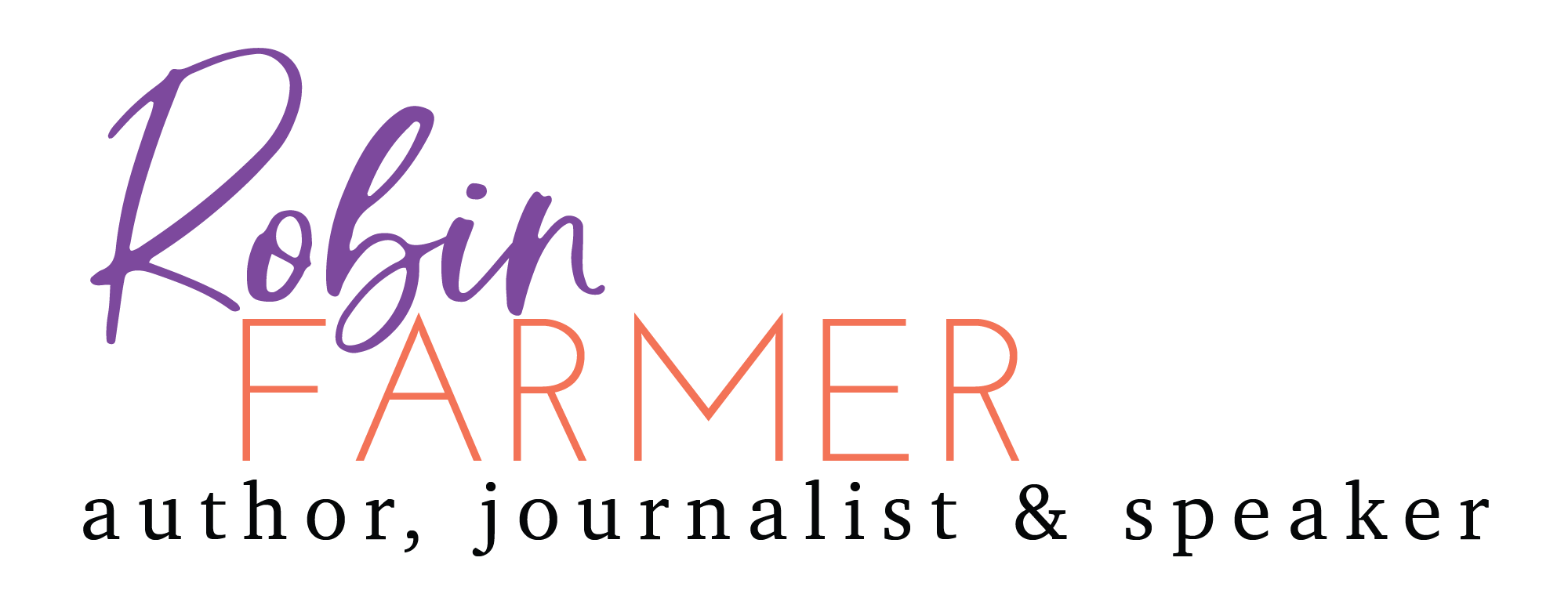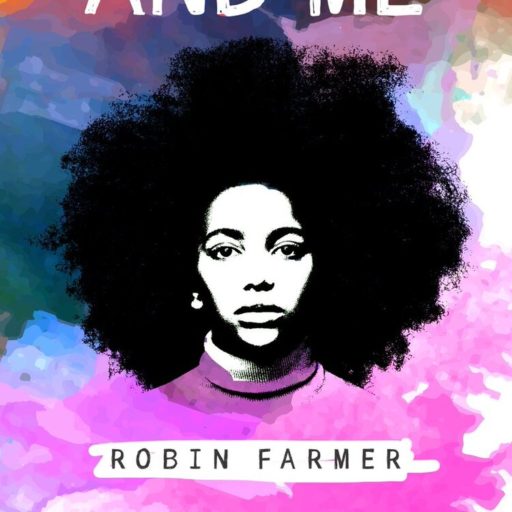Jan 5, 2011 | Writing Tips
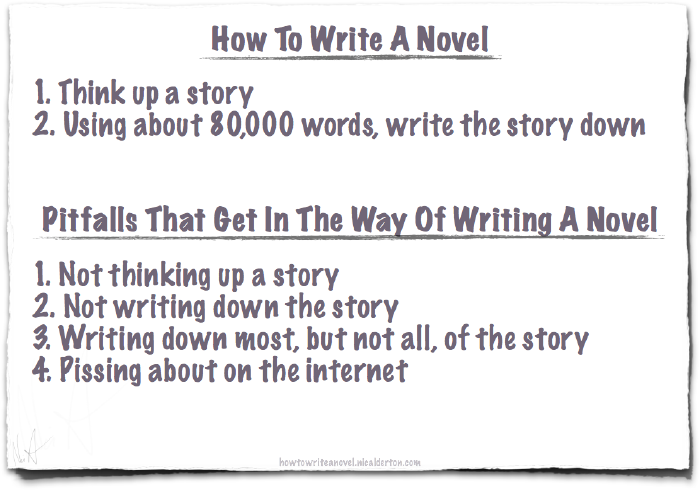
My husband is a marvelous writer. His readers know that. But every now and then his brilliance with story, its structure and its soul, moves me to tears.
And so on a road trip to Philly over the holidays I found myself doing the ugly cry when in a matter of minutes he fixed a gaping hole in my manuscript. All while navigating I-95.
“Just another reason why I love you,” I said, pulling out my Blackberry to capture his flowing thoughts.
As I listened I knew instinctively he was on point. He had effortlessly moved me closer to the finish line. Sometimes writers just have to ask for help.
Revising my manuscript is a top goal in 2011. Like other aspiring novelists, I long for the day when readers in far-flung places enjoy my book. This is the year to polish it. Whether I self-publish or not will be decided before spring. First, I must finish writing the best book I can.
It starts by writing forward.
I know many writers who revise the same chapter so many times they run out of steam midway. Big mistake, says Author Stacy Hawkins Adams, who coaches aspiring writers. She instructs writers to get the entire story down before getting caught up in additional researching, revising and editing. Her words freed me and can liberate other writers, too.
Give yourself a deadline.
You may delay but time will not. This pithy quote is not my own but it drills down to a profound truth: time is a gift. One you can not return. Get a wall calendar, or use your cell phone’s. Set a date to have a specific number of pages done and stick to it. If you can not be accountable to yourself, get an accountability partner.
Create a community of feedback readers.
Seek constructive criticism from truth tellers and not people in your amen corner. You know, loved ones who either don’t know weak writing or won’t tell you they fell asleep on page 3. Ask different and diverse circles to provide comment. Better yet, join a writing group so you can reciprocate the favor.
Kill the babies.
This is a term often used by newspaper editors to cub reporters who think highly of their pointless writing. Excessive dialogue? Flowery prose? Chunky paragraphs lean on substance? Hit delete. The crying – yours, will stop. Eventually.
Revise and Polish.
Love your work? I bet you do. Your story radiates creativity and style. It embodies your passion and months, maybe years of toil. Guess what? There’s room to improve it. Trust me, there are telling details to add, emotional truths to reveal, character growth to explore. Write it until the only changes you want to make involves removing commas.
Hide it.
Step away from the world of words you created. Go live life. Give your laptop body, the one with the hunched shoulders, flabby thighs and turtle neck, an excursion outdoors. Whatever you do, leave your manuscript alone for a few weeks. The distance will enable you to spot flaws. Promise.
Changing commas.
That’s all that is left to do. Add commas, delete commas. It’s as good as it will get at this point unless you seek professional editing, which should be a required step for all aspiring authors. Mail it to, well, all the folks on your list. Now, dust your shoulders, you’re done.
Do the ugly cry.
Just not on Oprah.
Dec 7, 2010 | Women Who Rock
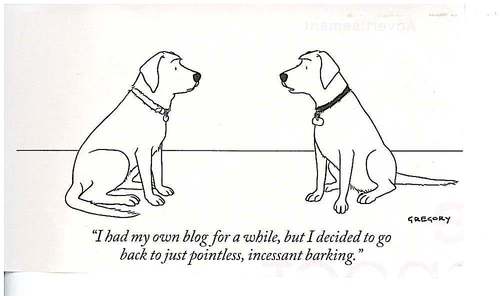
The other night as I passed my computer, I heard a wistful voice.
“What have I done wrong?” my blog called out. “Where have you been for the past week?”
In a rush to go to bed, I ignored you, beloved blog. But I’m back. And I have some random thoughts to share.
Last night I met a woman well north of 50 who works three part-time jobs, none with benefits. She calls her way of making ends meet “gigonomics,” a word she believed was added to the dictionary last year. She has been looking for a job for two years. What struck me was her smile and sunny disposition as she shared her story at St. Michael’s Church, where its Jobs Assistance Ministry (JAM) helps the unemployed network, polish resumes and get career advice.
What I also noticed was that only a handful of the 200 or so people present were under 40. It is an outrage what is happening to older workers although I don’t hear much outrage.
* * * * *
I started reading an advance copy of The Savage City: Race, Murder, and A Generation On The Edge. It’s a fascinating, fast, reader-friendly book by T.J. English about New York City during a ten-year period of racial violence triggered by poverty, racism, police brutality/corruption and the emerging black power movement. I recommend it highly and predict it will be a best-seller.
The final version may differ from the advance copy but I hope the opening sentence remains: When Martin Luther King Jr. visited the great city of New York, he was greeted with a silver letter opener plunged swiftly and unceremoniously into his chest.
The author had me right there.
* * * * *
Sunday I rediscovered on Youtube two of my favorite songs: “Groovin’ On A Sunday Afternoon” by The Rascals and “Dancin In The Moonlight” By King Harvest. I played each song at full volume about 16 times and will play them again until my groove is gone and my dance shoes are worn.
“Ah-ha-ha, ah-ha-ha, ah-ha-haaaaaa
We’ll keep on spending sunny days this way
We’re gonna talk and laugh our time away
I feel it comin’ closer day by day
Life would be ecstasy, you and me endlessly…Groovin’…on a Sunday afternoon.”
* * * * *
A tele-seminar with author and attorney Pamela Samuels Young deepened my faith in the kindness and power of women helping each other. She freely shared her resources to aspiring authors eager to self-publish. Not many authors are so giving of their connections. She rocks in all kinds of inspiring ways. I am eager to read her legal thrillers. Pamela published her first stand-alone novel, Buying Time, in November 2009. The Black Caucus of the American Library Association honored it with its 2010 Fiction Award.
* * * * *
So beloved Blog, a snapshot of my recent days. As you can see there is no theme, no story, no epiphanies. I continue exploring life and connecting with amazing life forces. I realize doing so is a privilege, a real blessing. I promise to share more of it with you.
Kisses.
Oct 9, 2010 | Writing Tips

Had an awakening today while moderating a panel on “The Art of the Interview” at the James River Writers Annual Conference. Writing, no matter the form, is such a solitary endeavor. So being surrounded by talented wordsmiths inspired me to revise my 188,000-word manuscript.
Meeting with an agent tomorrow as part of the conference will inspire me more. That’s the beauty and power of such gatherings. You get the ear of some folks who could spin your life in a different direction. And if not, you still benefit from informative and engaging sessions with practical tips on honing some aspect of writing. My panelists: Phaedra Hise, who has mastered the art of writing about whatever she wants, from wicked workers to aircraft accidents; Harry Kollatz, Jr., the fedora-clad storyteller with an engaging style; and May-Lily Lee, host and senior producer of Virginia Currents, the longest-running statewide television series currently on air.
Good company indeed.
Phaedra is wrapping up her fifth book, this one on the hot topic of hoarding. She told me she had three weeks left to write two chapters. Immediately my long-neglected desire to be a published author poked me near my heart. Hard.
I had questions to ask so I pretended not to notice. But as I faced the audience of writers I saw myself in their eyes. I understood their rapt attention and a palpable hunger for answers, strategies and connections to make their writing dreams materialize.
Six years ago I began submitting the first draft of my coming-of-age manuscript about a gifted and sassy 12-year-old African-American Catholic student in Philadelphia during the 1970s. Twelve rejections and a trip to the now defunct Maui Writers Conference later, I packed it up. Rejection stings and festers. Fast forward to this summer and a conversation with author and educator Paul Fleisher, who told me he had 50 rejections before he published a book. You just can’t give up, he said. I nodded half-heartedly as something stirred near my heart. I pretended not to notice.
Today, I asked the speakers “Who are your interview role models and what do you admire about their approach?” As I listened, my brain tilted right (its creative side) then left (its rational side) and I made a pact to fulfill my desire to be a published author.
So after I accidentally ended the session 15 minutes early (oops!) I ambled into the hallway to study the list of agents attending. I ran into Maya Smart, a JRW board member (and friend) who told me as a moderator I could meet with an agent.
What is it that they say about putting your requests out into the universe?
I got the last spot with the agent I requested. And no matter what happens tomorrow, I will keep moving toward my goal. Word by word. Day by day.
Sep 18, 2010 | Women Who Rock
I stood in a packed hall to hear author Rebecca Skloot talk about a black woman from Virginia whose cells helped to develop a polio vaccine, reveal the secrets of cancer and lead to advances about cloning and gene mapping, among other research discoveries.
Skloot is the author of The Immortal Life of Henrietta Lacks.
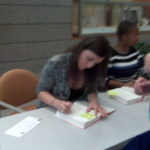
Henrietta’s cells, known as HeLa cells, were the first “immortal” human cells grown in culture. Today, more than 60 years after her death from cervical cancer, they remain alive. These HeLa cells, taken without Henrietta’s permission, have generated billions of dollars although Henrietta’s family did not receive a dime.
The book gave a voice and overdue dignity to Henrietta, who until May 29, was buried in an unmarked grave. Rebecca has also started a foundation, funded in part by book sales, to provide college scholarships and health insurance to Henrietta’s descendants.
Rebecca’s book is a testament to the power of judicious research, steely persistence and artful storytelling. I had to meet her. So did many others on a recent sweltering evening at the Library of Virginia. A lady with yellow Post-it notes collected our autograph requests for Rebecca. Mine had four simple but challenging words: For Robin, keep writing!
As I approached, a woman sitting next to Rebecca handed her my request.
“So you are a writer,” she said, as I stepped up.
I nodded, but I didn’t want to talk about me. “I know it floors you when people say you were an overnight success when it took you 10 years to write a story that you became curious about at age 16,” I said.
She looked up at me and nodded. We chatted briefly about her long journey to write the book.
“What kept you going after all those years?” I asked.
She said she had to tell the story, was unable to let it go and that she has a stubborn streak. Instantly I realized we had struck up a real conversation and not fan-talk chatter. But mindful of the women waiting behind me, I smiled and moved on, upset that I had left my camera home. I remembered I had a camera on my Blackberry. Hence, the bad photo above of this amazing wordsmith and woman.
Rebecca did not grow up wanting to be a writer. As a child, she wanted to become a veterinarian. After failing her freshman year, she attended an alternative school, which allowed her to take community college courses. It was there that she learned about Henrietta.
It’s the stuff of movies and the story will soon be on HBO. Oprah will produce it. I hope Skloot writes the script, too.
Earlier that evening, when I scanned the jammed-to-capacity crowd listening to Rebecca, I was struck by the diversity of her book-clutching admirers. This story weaving African-American history, medical research, bioethics, greed and a family’s struggles connected with readers on so many levels.
Rebecca gave the largely unknown Henrietta the legacy she deserved, helped her children to learn about a mother whose death at 31 left her a stranger, and extended educational opportunities to her descendants — all while making science engaging. Small wonder readers of all ages, shades and interests felt the need to greet this author whose masterful storytelling connects disparate cultures.
Because of Rebecca’s stubborn refusal to let it go, Henrietta’s story lives on along with her immortal cells.
Aug 28, 2010 | Awakenings
Welcome! This blog is about people who promote topics I am passionate about: screenwriting, female empowerment, diversity and philanthropy. But, at its core, this is my homage to individuals inspiring troubled souls (aren’t we all) to start anew.
Visit anytime for a cup of cheer and a bite of motivation.

